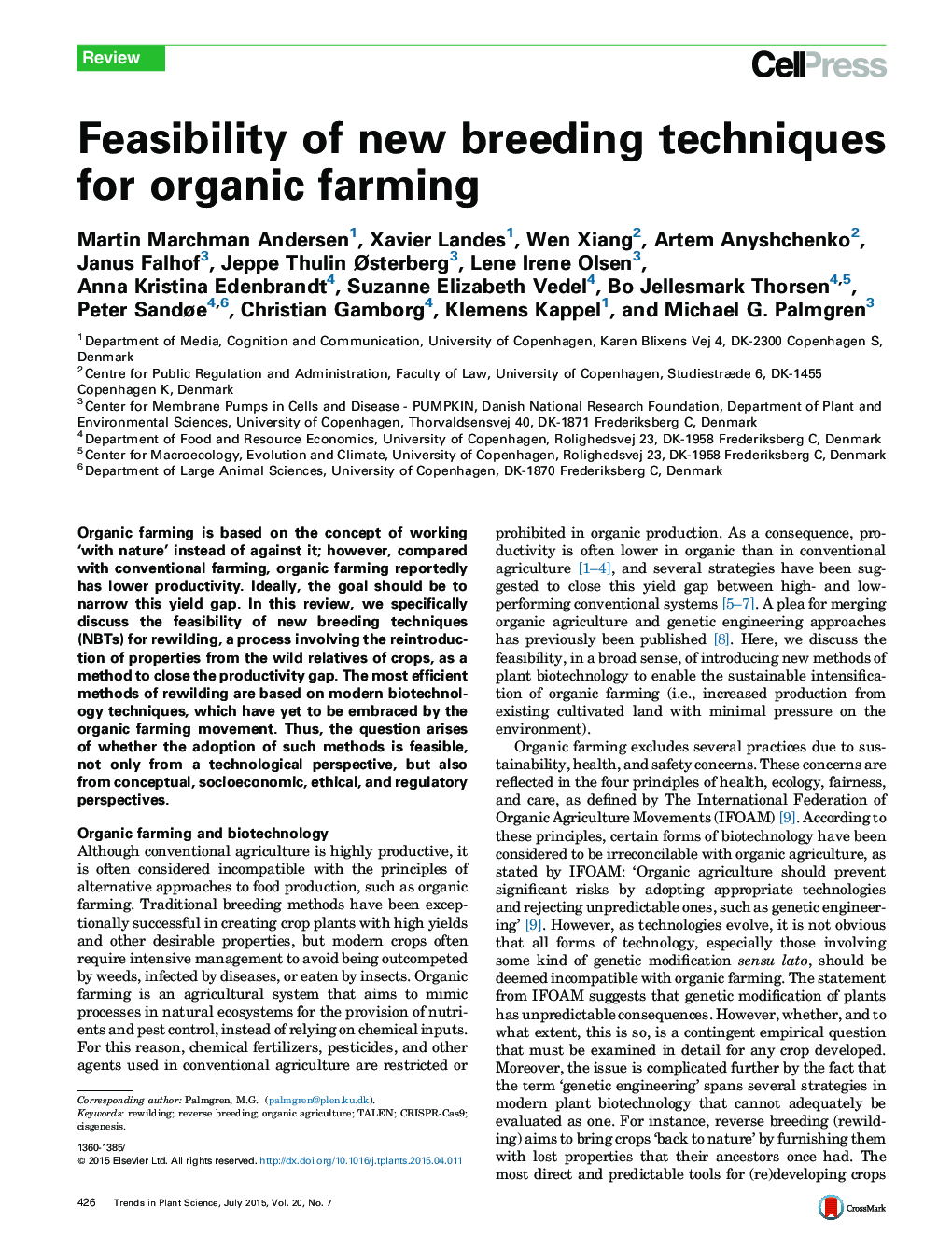| Article ID | Journal | Published Year | Pages | File Type |
|---|---|---|---|---|
| 2825876 | Trends in Plant Science | 2015 | 9 Pages |
•Organic farming suffers from lower productivity than conventional agriculture because the use of pesticides, herbicides, and fertilizers is restricted.•Rewilding furnishes crops with lost properties that their ancestors once had to tolerate adverse environmental conditions.•Rewilding is in accordance with the values of organic breeding and would contribute to closing the yield gap.•New breeding techniques that involve methods of genetic engineering allow for rewilding in a way that the final crop cannot be distinguished from a crop bred by traditional means.
Organic farming is based on the concept of working ‘with nature’ instead of against it; however, compared with conventional farming, organic farming reportedly has lower productivity. Ideally, the goal should be to narrow this yield gap. In this review, we specifically discuss the feasibility of new breeding techniques (NBTs) for rewilding, a process involving the reintroduction of properties from the wild relatives of crops, as a method to close the productivity gap. The most efficient methods of rewilding are based on modern biotechnology techniques, which have yet to be embraced by the organic farming movement. Thus, the question arises of whether the adoption of such methods is feasible, not only from a technological perspective, but also from conceptual, socioeconomic, ethical, and regulatory perspectives.
